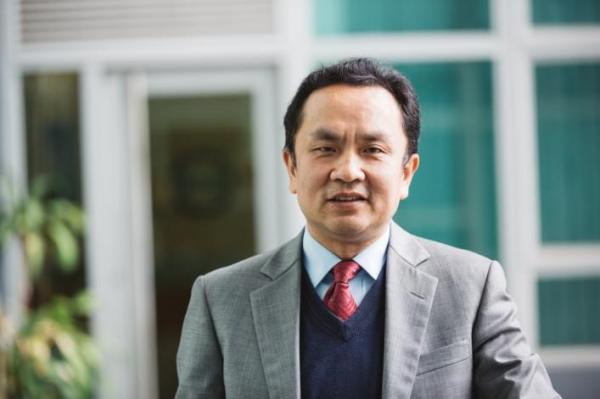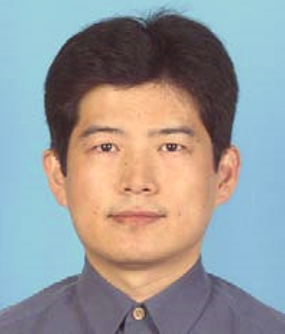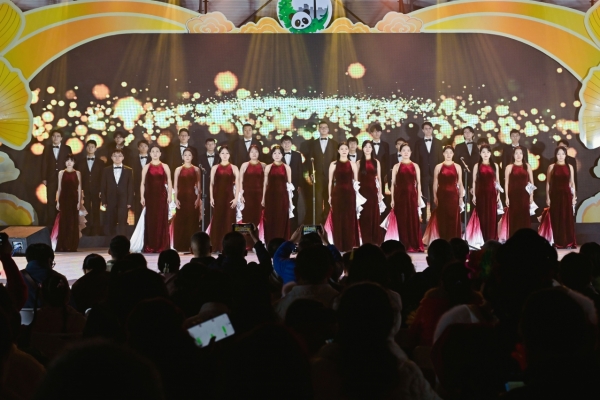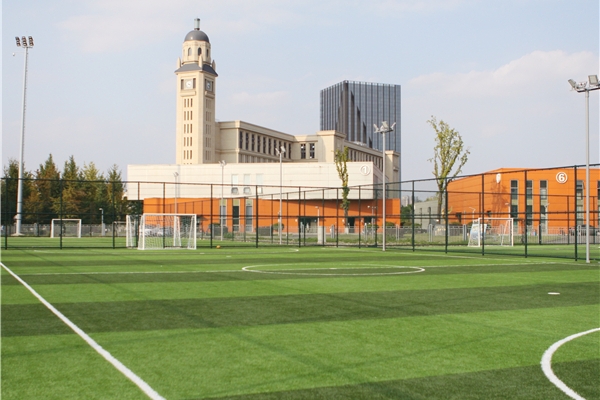即可将网页分享至朋友圈
第四届国际控制科学与工程研讨会由电子科技大学机器人中心发起,自动化工程学院承办,邀请了国内外相关领域的专家学者,以学术报告形式与我校师生分享和讨论最新的理论与技术成果。具体安排如下,欢迎广大师生参加!
时 间:2016年7月25日(周一)下午14:30
地 点:电子科技大学图书馆三楼第四会议室
主办单位:机器人研究中心
承办单位:自动化工程学院
报告题目一:Exponentially Convergent Adaptive Control Without Persistent Excitation
报告人:Miroslav Krstic(加州大学教授)

报告人简介:
Professor Miroslav Krstic holds the Alspach endowed chair and is the founding director of the Cymer Center for Control Systems and Dynamics at UC San Diego. He also serves as Associate Vice Chancellor for Research at UCSD. As a graduate student, Krstic won the UC Santa Barbara best dissertation award and student best paper awards at CDC and ACC. Krstic is a Fellow of IEEE, IFAC, ASME, SIAM, and IET (UK), and Associate Fellow of AIAA. He has received the PECASE, NSF Career, and ONR Young Investigator awards, the Axelby and Schuck paper prizes, the Chestnut textbook prize, the ASME Nyquist Lecture Prize, and the first UCSD Research Award given to an engineer. Krstic has also been awarded the Springer Visiting Professorship at UC Berkeley, the Distinguished Visiting Fellowship of the Royal Academy of Engineering, the Invitation Fellowship of the Japan Society for the Promotion of Science, and the Honorary Professorships from Northeastern University (Shenyang), Chongqing University, and Donghua University. He serves as Senior Editor in IEEE Transactions on Automatic Control and Automatica, as editor of two Springer book series, and has served as Vice President for Technical Activities of the IEEE Control Systems Society and as chair of the IEEE CSS Fellow Committee. Krstic has coauthored eleven books on adaptive, nonlinear, and stochastic control, extremum seeking, control of PDE systems including turbulent flows, and control of delay systems.
报告摘要:
In adaptive control, in which PE is generically absent, not only is the parameter estimate not guaranteed to converge to the true value, but the state is regulated to the set point at a rate that is not necessarily exponential. The seminar introduces a design of time-varying adaptation gains (as well as time-varying control gains, when appropriate) which achieve exponential regulation of the plant state with an exponential rate that is uniform in the initial condition. Full state feedback results are presented for general classes of nonlinear and linear systems. Furthermore, the possibility of going from exponential regulation to finite-time adaptive regulation is explored.
报告题目二:Towards Fusion of Vision with Robot Motion
报告人:刘云辉(香港中文大学教授)

报告人简介:
1985年毕业于北京理工大学力学工程系,1986年作为中国政府派遣留学生赴日本留学。1989年获得大阪大学基础工学部机械工程系工程硕士学位,1992年获得东京大学工学部数理与信息工程系工学博士学位。1992年4月至1995年2月期间,在日本通商产业部工业技术院电子技术综合研究所任研究科学家。1995年2月加入香港中文大学自动化与计算机辅助工程系,从事教学和科研工作,现为该系教授,博士生导师,机器人控制实验室主任。2001年10月,被聘为国防科技大学“长江学者”计划特聘教授,博士生导师,香港中文大学与国防科技大学智能感知系统联合研究中心主任。北京理工大学、中国科学院沈阳自动化研究所兼职教授。刘云辉教授主要从事机器人,自动化技术和信息科学等领域的研究工作,是国际知名机器人和自动化技术专家,国际电子电机工程师协会(IEEE)高级会员,日本机器人学会会员,中国自动化学会机器人专业委员会常务理事,机器人和自动化领域国际权威杂志IEEE机器人与自动化(IEEE Transactions on Robotics and Automation) 编委。他在国际著名专业期刊和国际会议上发表学术论文100篇以上,并获得日本机器人学会1994年度和1998年度最优秀论文奖,IEEE 2001 Int. Conf. on Robotics and Automation视觉领域最优秀论文Finalists, IEEE Electro/Information Technology Conf.优秀论文奖等国际奖。在日本留学和工作期间,他参加了三菱电机火力发电智能控制系统的开发,日本国家大型计划核电厂自动维修的研究和开发工作。他开发的医疗搬运机器人已经在香港威尔斯亲王医院得到应用,代替护士完成各种运送工作。刘教授的研究得到了中国自然科学基金,国家863高新技术发展计划,香港研究资助局,日本科技部和通商产业部,以及中国和日本工业界的广泛资助。
报告摘要:
Human heavily relies on visual feedback from eyes to control his/her motion. To develop a robotic vision system that functions like human eyes, one of the crucial and difficult problems is how to effectively incorporate visual information to motion control of a robot whose dynamics is highly nonlinear. This talk will present our recent efforts and latest results on vision-based control of robotic systems. Unlike the traditional “look-then-move” approaches, our controllers embed feedback from visual sensors into the low-level loop of robot motion control. It will be demonstrated that by an innovative and simple design of the visual feedback we can solve several difficult problems in visual servoing such as uncalibrated dynamic visual servoing, trajectory tracking and formation control of nonholonomic mobile robots without position measurement, visual odometry, and model-free manipulation of deformable objects like soft tissues. Applications of the visual servoing approaches in robotic surgery will be also introduced.
报告题目三:Deterministic learning from adaptive control of nonlinear systems
报告人:王聪(华南理工大学教授)

报告人简介:
1989年7月和1997年4月毕业于北京航空航天大学自动控制系并获得学士和硕士学位,2002年6月获得新加坡国立大学电子与计算机工程系博士学位。1989-1998年在中国航空工业总公司第613研究所任助理工程师、工程师,2001-2004年在香港城市大学电子工程系任博士后研究助理、高级研究助理、Research Fellow。2004年加入华南理工大学。2005-2007年在国家自然科学基金委员会信息科学部自动化学科任流动项目主任。现任华南理工大学自动化学院教授、博士生导师,华南理工大学控制与优化研究中心副主任。
研究兴趣包括非线性系统的自适应神经网络控制与辨识,以及在此基础上提出的确定学习理论、动态模式识别、基于模式的智能控制等。在Automatica、IEEE Transactions on Neural Networks等国际著名刊物,以及控制界国内外重要会议发表论文逾50篇;其中,被SCI收录的国际期刊论文16篇,被EI收录的国际期刊与会议论文20篇,被SCI引用逾200次。在美国CRC出版社出版《确定学习理论》英文专著1部。学术兼职包括《控制理论与应用》编委,IEEE控制系统学会会议编委,中国人工智能学会空天智能系统专业委员会委员,IEEE控制系统学会智能控制技术委员会委员。2006年入选教育部新世纪优秀人才支持计划。2006年获广东省自然科学奖一等奖。
报告摘要:
One of the amazing successes of biological systems is their ability to "learn by doing" and so adapt to their environment. In this talk, first, a deterministic learning mechanism is presented, by which an appropriately designed adaptive neural controller is capable of learning closed-loop system dynamics during tracking control to a periodic reference orbit. Among various neural network (NN) architectures, the radial basis function (RBF) network is employed. A property of persistence of excitation (PE) for RBF networks is established, and a partial PE condition of closed-loop signals, i.e., the PE condition of a regression subvector constructed out of the RBFs along a periodic state trajectory, is proven to be satisfied. Accurate NN approximation for closed-loop system dynamics is achieved in a local region along the periodic state trajectory, and a learning ability is implemented during a closed-loop feedback control process. Second, based on the deterministic learning mechanism, a neural learning control scheme is proposed which can effectively recall and reuse the learned knowledge to achieve closed-loop stability and improved control performance. The presented deterministic learning mechanism and the neural learning control scheme provide elementary components toward the development of a biologically-plausible learning and control methodology. Simulation studies are included to demonstrate the effectiveness of the approach.
编辑:罗莎 / 审核:林坤 / 发布:林坤


